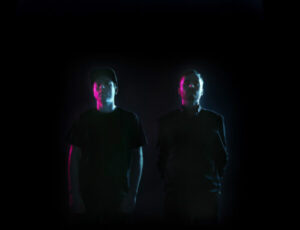Crimes of Passion by Crocodiles is a conflicting experience. By that, I mean all the elements are there: the fuzz, the ego, the classic cool, all the best worst parts of a rock band. However, the connection is similar to that of a cable that only works half the time, and every so often must forcibly be manipulated in order to regain the auditory experience.
All Fenders, Ray Bans, and 1980s’ pastiches aside, Crocodiles hold their lyrics in high regard, and that I find respectable. Words are a hard thing to come by, let alone get across. English, the language I assume this band is using (Brandon Welchez likes to mumble) makes it harder. So many people I know are turned off by lyrics that circle around an idea rather than function in an A to B format. Call me hipster, but I enjoy the hunt, and the confusion that comes with it. Now this is not to contradict my first impressions of the album, Crocodiles know how to write, however there was nothing that was out of the ordinary or invigorating. I wasn’t smacked across the face or lulled into a cool state – I was somewhere in the middle of that. After I detached from my large disco-era headphones, I wasn’t burning with questions or as excited as I thought I would be. Not like I was with their 2010 Sleep Forever album that had me replaying track after track. The safe and secure nature of the climate I was exploring was like television; a feeling behind a glass screen that allows you to see everything, yet touch nothing.
The androgynous album artwork I feel would have had more controversy stapled to it a decade or so ago, but now the image reads as “just another cool picture”. It also reads as a complacent statement. The suggestive pink exposure is obvious in its intent, to incite some kind of acceptance or refusal, but I think we can all agree Bowie already hit the nail on the head. The reaction that was being sought I doubt comes alive in the real modern minds of today. Debasing something like this does not improve its status, one could say, though through another lens one could be wrong. The thoughts behind the image are a comment on where we are.
The genre and message of these guys is nothing new or strange: their job is to keep that old subversive strange going and have a life of its own. The bent nostalgia Crocodiles have contracted for themselves to make up who they are today is what anyone does, though some are able to do it better, and, unfortunately, I was disappointed with what I was given. Very much like marking a homework assignment pulled together by a student who can do better… Crocodiles, you can do better.
Highlights
“I Like It In The Dark” exudes a Keroauc-era beat poetry session. At the tail end of the track, the umbilical chord of background music is cut leaving behind the ghostly wave of Welchez’s speech.
The hopeful ting of strings in “She Splits Me Up” depicts a conflicted romance that questions how long it will last.










